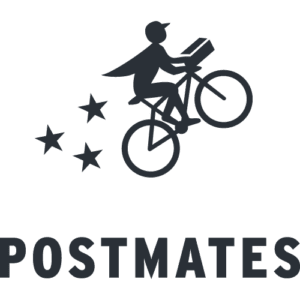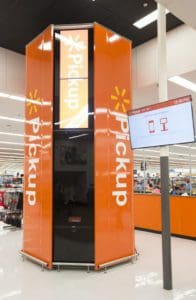 In the Boston area, this is one of the best weekends of the year – Patriot’s Day weekend. And the biggest tradition of Patriot’s Day weekend is the running of the Boston Marathon on Monday, where 30,000+ runners will trek the 26.2 miles from Hopkinton to Boston. Every runner has a story, whether they are an elite runner looking for the win, a runner that has qualified for the most prestigious marathon in the world and are seeing their goal come to fruition, or, like me a decade ago, a weekend warrior that is raising money for charity and just trying to finish. This year, Adidas looks to “create legends” with personalized videos of every marathon runner. The company says it will create 30,000 unique videos for those 30,000 runners, delivered within hours after the race is over. For the finishers, that will certainly be a great way to capture the moment. And now on to this week’s logistics news.
In the Boston area, this is one of the best weekends of the year – Patriot’s Day weekend. And the biggest tradition of Patriot’s Day weekend is the running of the Boston Marathon on Monday, where 30,000+ runners will trek the 26.2 miles from Hopkinton to Boston. Every runner has a story, whether they are an elite runner looking for the win, a runner that has qualified for the most prestigious marathon in the world and are seeing their goal come to fruition, or, like me a decade ago, a weekend warrior that is raising money for charity and just trying to finish. This year, Adidas looks to “create legends” with personalized videos of every marathon runner. The company says it will create 30,000 unique videos for those 30,000 runners, delivered within hours after the race is over. For the finishers, that will certainly be a great way to capture the moment. And now on to this week’s logistics news.
- Instacart bags another $150 million
- Postmates and DoorDash have discussed a merger
- Walmart partners with Postmates to expand grocery delivery
- Walmart is adding hundreds more pick-up towers
- Whole Foods, Amazon launch free, two-hour grocery delivery in L.A.
- Farmers hit the road to reach shoppers before Amazon does
- Indian Ecommerce companies plan to double or triple fleet of delivery agents
- GOP Senator moves to close shipping loophole
 Crowdsourced deliveries have certainly been a hot topic lately, and I have written about both the opportunities and the challenges. But one thing seems to be certain – funding keeps pouring in to the market. This week, Instacart announced that it is closing in on another $150 million in funding from investors like Coatue Management. The latest funding is an extension of a Series E round first disclosed in February, which now totals $350 million at a $4.35 billion post-money valuation. Between the two rounds of investments, Instacart was able to sign up Sam’s Club as a customer, meaning that it now has partnerships with the largest grocers in the US. Since its formation in 2011, the company has raised more than $1 billion in total funding.
Crowdsourced deliveries have certainly been a hot topic lately, and I have written about both the opportunities and the challenges. But one thing seems to be certain – funding keeps pouring in to the market. This week, Instacart announced that it is closing in on another $150 million in funding from investors like Coatue Management. The latest funding is an extension of a Series E round first disclosed in February, which now totals $350 million at a $4.35 billion post-money valuation. Between the two rounds of investments, Instacart was able to sign up Sam’s Club as a customer, meaning that it now has partnerships with the largest grocers in the US. Since its formation in 2011, the company has raised more than $1 billion in total funding.
 Speaking of crowdsourced deliveries, Postmates and DoorDash have discussed merging the two companies. Even though these two companies are two of the largest restaurant delivery start-ups, they are facing challenges that have made a merger seem like a good idea. Namely, both companies are trying to fend off better funded competitors like GrubHub, Uber, and Amazon. DoorDash recently brought in $535 million in funding from SoftBank, which puts it in a better position; Postmates, on the other hand, is still a ways from being profitable. Combined, DoorDash and Postmates would have about 23 percent market share, according to data from Second Measure, a startup that analyzes debit and credit card transactions. UberEats has about 20 percent of the market, while GrubHub — counting its Seamless and Eat24 businesses — has 52 percent.
Speaking of crowdsourced deliveries, Postmates and DoorDash have discussed merging the two companies. Even though these two companies are two of the largest restaurant delivery start-ups, they are facing challenges that have made a merger seem like a good idea. Namely, both companies are trying to fend off better funded competitors like GrubHub, Uber, and Amazon. DoorDash recently brought in $535 million in funding from SoftBank, which puts it in a better position; Postmates, on the other hand, is still a ways from being profitable. Combined, DoorDash and Postmates would have about 23 percent market share, according to data from Second Measure, a startup that analyzes debit and credit card transactions. UberEats has about 20 percent of the market, while GrubHub — counting its Seamless and Eat24 businesses — has 52 percent.
Speaking of Postmates, the company is partnering with Walmart to expand the latter’s grocery delivery business. The partnership will allow Walmart to provide same-day delivery of fresh food and other items to customers who order online, starting in Charlotte, North Carolina, and expanding to 100 other metro areas in the coming months. With Amazon’s expansion of grocery delivery, namely due to its acquisition of Whole Foods, and Target’s acquisition of Shipt, same day grocery delivery service is becoming more important. With the addition of Postmates, Walmart says it will be able to reach about 40% of households around the country. Customers place orders through Walmart’s website or already-existing grocery app, which is available on mobile devices, and choose a window of time for delivery. The minimum order is $30 and the delivery fee is $9.95.
 Speaking of Walmart, the company is adding hundreds more of its Pickup Towers at stores across the US. By the end of the year, the company will have over 700 of the Towers in stores nationwide. The Towers are 16 foot-tall, self-service kiosks for online order retrieval. Customers place their orders online, pay for the item, and then enter the order number into the machine. The machine then spits out the package similar to how a vending machine works. The company said that since its debut, Walmart customers have placed over 500,000 orders. The kiosks large size makes them able to hold items as big as televisions, Walmart said.
Speaking of Walmart, the company is adding hundreds more of its Pickup Towers at stores across the US. By the end of the year, the company will have over 700 of the Towers in stores nationwide. The Towers are 16 foot-tall, self-service kiosks for online order retrieval. Customers place their orders online, pay for the item, and then enter the order number into the machine. The machine then spits out the package similar to how a vending machine works. The company said that since its debut, Walmart customers have placed over 500,000 orders. The kiosks large size makes them able to hold items as big as televisions, Walmart said.
![]() Amazon and Whole Foods are rolling out a program for free two-hour grocery delivery in the Los Angeles area via Prime Now. The companies said Tuesday that Amazon Prime members in greater Los Angeles and Orange County can shop through the Prime Now service for thousands of Whole Foods items and have them delivered within two hours at no charge. Products available via the service include fresh and organic produce, bakery, dairy, meat and seafood, floral, and other locally sourced items, as well as a wide selection of beer, wine, and spirits. With the expansion to Los Angeles, Prime Now free two-hour delivery is available in seven markets: Los Angeles, CA; Atlanta, GA; San Francisco, CA; Austin, TX; Cincinnati, OH; Dallas, TX; and Virginia Beach, VA. The company plans to roll the service out nationwide later this year.
Amazon and Whole Foods are rolling out a program for free two-hour grocery delivery in the Los Angeles area via Prime Now. The companies said Tuesday that Amazon Prime members in greater Los Angeles and Orange County can shop through the Prime Now service for thousands of Whole Foods items and have them delivered within two hours at no charge. Products available via the service include fresh and organic produce, bakery, dairy, meat and seafood, floral, and other locally sourced items, as well as a wide selection of beer, wine, and spirits. With the expansion to Los Angeles, Prime Now free two-hour delivery is available in seven markets: Los Angeles, CA; Atlanta, GA; San Francisco, CA; Austin, TX; Cincinnati, OH; Dallas, TX; and Virginia Beach, VA. The company plans to roll the service out nationwide later this year.
While Walmart, Amazon, and the crowdsourced start-ups are trying to take control of the online food business, sometimes the small guys get their piece too. Last month, David Nowacoski, a chicken and pig farmer in East Smithfield, PA, started a service that delivers locally produced meats, cheeses, and vegetables across three counties in northern Pennsylvania. His start-up collects food from farms and transports it on a weekly schedule to residents who place their orders online. Customers place their order through the Deliver Fresh website and receive the goods on Thursday or Friday each week; the items come from as many as 20 farms each week. For now, most orders are dropped off at central locations such as farm stands or church parking lots. Eventually, Deliver Fresh hopes to expand the service to include home delivery. It’s not every day that we see individual farmers going up against the big guys, but it makes for an inspiring story.
As competition intensifies with the growth of e-commerce, Indian e-commerce companies are looking to double or triple their fleets of delivery agents. Companies such as Flipkart, Big-Basket, Swiggy, 1mg, Pepperfry and Urban Ladder, among others, are planning to increase the number of delivery workers, which could lead to an overall increase of about 20% in the market. Right now, there are approximately 185,000 delivery workers in India, but there is still a about 35,000 vacancies for these jobs. As the e-commerce market continues to grow, and consumers expect higher service levels and faster delivery timeframes, these numbers are poised to continue to grow.
Republican Senator Bill Cassidy from Louisiana introduced legislation this week that could make it harder for Chinese manufacturers to compete on US marketplaces. This comes on the heels of President Trump’s attacks on Amazon and his promise to impose strict tariffs on Chinese imports. The legislation is the Ending Needless Delivery Subsidies (ENDS) Act, which would force the US Secretary of State to negotiate the end to all foreign subsidies of international postal shipments by Jan. 1, 2021. The fees are currently set by the UN’s Universal Postal Union (UPU), which determines how much each member countries pays for the delivery of international mail. The system is set up so that wealthier countries pay more than poorer nations. However, in recent years, the UPU has provided an opening for foreign manufacturers (particularly those in China), to cheaply get products into US online marketplaces like Amazon.
That’s all for this week. Enjoy the weekend, and the song of the week, Jackson Browne’s Running on Empty.

















Leave a Reply